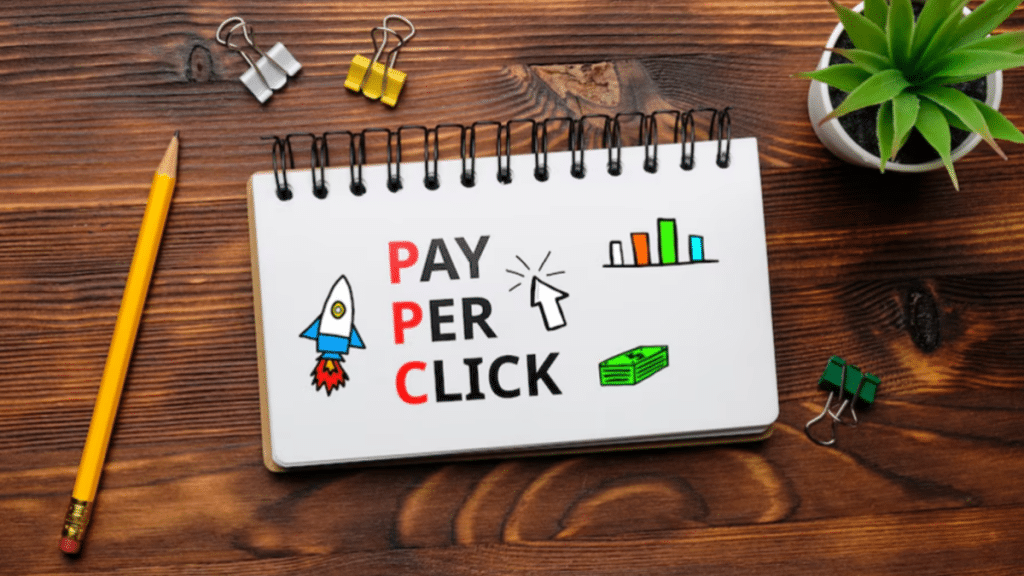In today’s competitive digital landscape, businesses are constantly searching for strategies to drive growth and boost revenue. Reaching possible consumers online has become mostly dependent on pay-per- click (PPC) advertising. But with its associated costs, many business owners wonder, “Is PPC worth the investment?”
This article explores the advantages of PPC, its potential challenges, and why combining it with PPC marketing resources and the best data analytics tools can help maximize its value for your business.
What Is PPC, and How Does It Work?
A Quick Overview
Pay-per- click, or PPC, advertising is a digital marketing tool whereby companies pay a fee every time their ad is clicked. These ads appear on search engines, social media platforms, and other websites, targeting users based on specific keywords, demographics, or online behaviors.
For example, Google Ads is one of the most popular PPC platforms, allowing businesses to bid for placement at the top of search results. The beauty of PPC lies in its ability to deliver targeted traffic, ensuring that your message reaches users actively searching for products or services like yours.
Advantages of PPC Advertising
Instant Results and Increased Visibility
One of the biggest advantages of PPC is its ability to deliver instant results. Unlike SEO (Search Engine Optimization), which can take months to produce noticeable outcomes, PPC ads start driving traffic as soon as your campaign goes live.
This increased visibility is particularly valuable for businesses launching new products, entering competitive markets, or trying to boost sales quickly. By leveraging PPC marketing resources, businesses can fine-tune their campaigns to appear in front of the right audience at the right time.
High Return on Investment (ROI)
PPC campaigns often yield a high ROI when managed correctly. With precise targeting, you can ensure that your budget is spent on users likely to convert into customers. For example, businesses using PPC can bid on long-tail keywords (specific, intent-driven phrases) to attract highly qualified leads.
The use of best data analytics tools further enhances ROI by providing insights into which ads perform best, allowing businesses to adjust their strategies for maximum profitability.
Challenges of PPC Advertising
Costs Can Add Up
PPC has immense promise but also presents certain difficulties. One of the primary concerns is cost. PPC might be costly depending on your sector and the competition of your chosen keywords. Businesses must carefully monitor their spending to avoid exceeding their budgets without seeing tangible results.
This is where PPC marketing resources come into play. By leveraging tools that provide keyword research, bid optimization, and performance tracking, businesses can manage their costs effectively and ensure they’re investing in the right areas.
Requires Continuous Optimization
PPC is not a “set-it-and-forget-it” strategy. To stay successful, campaigns call for constant monitoring and changes. Factors like changing customer behavior, competitor strategies, and keyword performance can impact your campaign’s success.
Using the best data analytics tools helps streamline this process. These tools provide real-time data and insights, enabling businesses to identify trends, spot issues, and optimize campaigns for better performance.

How PPC Complements Other Marketing Strategies
Boosting SEO and Content Marketing
PPC and SEO work hand in hand to enhance online visibility. While SEO builds organic traffic over time, PPC provides an immediate boost. For instance, using PPC ads to promote a newly published blog post can drive instant traffic, increasing its visibility and helping it rank higher organically.
Similarly, PPC campaigns can highlight gaps in your content marketing strategy. By analyzing which keywords perform best in PPC, businesses can create targeted content around those terms, improving their overall digital presence.
Enhancing Social Media Marketing
Social media platforms like Facebook, Instagram, and LinkedIn offer PPC advertising options that allow businesses to reach specific audiences. These ads can complement organic social media efforts, amplifying your brand’s reach and engagement.
By using PPC marketing resources, businesses can create ads tailored to specific social media audiences, ensuring their message resonates and drives action.
Leveraging Data Analytics for PPC Success
Importance of Data-Driven Decision Making
Any PPC campaign depends critically on data to be successful. Without accurate insights, businesses risk wasting their budgets on ineffective strategies. The best data analytics tools allow businesses to track key metrics such as click-through rates (CTR), conversion rates, and cost per acquisition (CPA).
These insights help businesses understand what’s working and what’s not, enabling them to refine their campaigns. For instance, if certain keywords consistently underperform, businesses can reallocate their budget to higher-performing terms.
Tools to Consider
To make the most of PPC advertising, businesses should invest in reliable tools such as:
- Google Analytics: Offers in-depth insights into user behavior and campaign performance.
- SEMrush: A great tool for competitor study and keyword research.
- HubSpot: Provides comprehensive tracking and reporting for marketing campaigns.
- KISSmetrics: Focuses on tracking customer journeys and conversions.
These tools, combined with PPC marketing resources, ensure that campaigns are optimized for success.
Is PPC Worth the Investment for Your Business?
Determining the Value
The value of PPC depends on your business goals, budget, and ability to manage campaigns effectively. For businesses looking to:
- Increase website traffic,
- Generate leads quickly, or
- Gain visibility in competitive markets,
PPC is an invaluable tool.
However, to make PPC worth the investment, businesses must approach it strategically. This involves careful planning, continuous monitoring, and the use of best data analytics tools to measure performance.
Tips for Maximizing PPC ROI
- Set Clear Goals: Whether your goals with PPC are lead generation, sales enhancement, or brand awareness building, define exactly what you want to accomplish.
- Target the Right Audience: Use demographic and behavioral data to refine your targeting.
- Leverage Tools: Use PPC marketing resources and analytics tools to monitor and optimize campaigns.
- Test and Optimize: Experiment with different ad copy, landing pages, and keywords to see what works best.
- Track ROI: Continuously measure the return on your investment to ensure you’re getting value from your campaigns.
Conclusion
PPC advertising is a powerful tool for businesses looking to enhance their digital presence and drive results. While it comes with challenges such as cost and continuous optimization, the benefits far outweigh the drawbacks when managed effectively.
